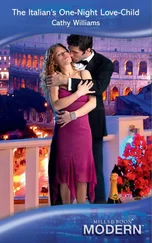Jane slept a little, he ate a little, he drank a little. He cried a lot. He screamed when he wasn't vomiting; it helped. He kept one bloodshot eye on the porthole, craving the weathered bow of a rescue vessel, or the beat of a helicopter rotor turning the surface to shivering skin. But instead it was swell after swell of convulsing ocean. He could be anywhere. He could be drifting north towards the Arctic. A pure childish fear had reawakened in him, gripped him to the point of numbness. But at some point he seemed to switch off and everything that had been conspiring to make him feel alive – the fear and hunger, the panic, the hope – shrivelled like a pupil in bright light.
Stanley stood in his red pyjamas at the end of some horribly long corridor, Walter the lion hanging from his tiny fist. His eyes were like the portholes in the Ceto, unstable, crawling. The filth shifted upon them like iron filings on a bed of magnets. He was speaking, but the words were spoiled by the misery in his voice. Sometimes Jane had to sit and soothe him for five or ten minutes when he was like this, until Stanley's chest stopped hitching and he was able to make out what was wrong. It was usually thirst, or dreams of being left behind, of not being able to catch up during a walk to the shop or the park. Sometimes it was that uncomplicated need for human closeness. A hug, reassurance. Stay with me all night, Daddy. Don't go.
He felt himself clench inside that he had not always done as his son asked. Little things, really. But important to Stanley, which should have mattered more at the time. He could have stroked his hair, slept with him until morning, but there was always a perceived crisis elsewhere.
He had always believed he carried childishness in him, that he had never truly grown up, but the opposite was the case. He was all too quick to finish the game, pack away the toys, curtail the rough and tumble. There was always something else that needed doing. And now he was near death and his boy was 500 miles away. It pierced him to think there would be no more hide-and-seek or piggyback rides.
Perhaps there had been footage of the storm on the TV and Cherry was either shielding him from it or gleefully pointing out that had Jane found a job on a building site in London Daddy wouldn't be in trouble.
Stanley in the corridor, putting out a hand to the wall to steady himself. His voice shattered by fear. 'Dad? Dad? I'm scared.'
'It's all right, Stan,' Jane said. 'I'm with you.'
3. DEAD CLADE WALKING
He was thinking about beaches on the west coast of France. Long and white and narrow like ivory letter-openers. Stanley no more than six months old, sitting in the sand with a large floppy cricket hat casting a broad shadow. Cherry snoozing on her back in a black bikini, skin shining with sun cream. The heat pressing people into the ground. A blanket and some baguettes, some cheese. A jar of anchovies. Christ, he had been mad for anchovies that summer. A bottle of Muscadet in a cool bag. The air thin and baked, stripping the throat dry. Sweat dried as soon as it escaped the pores. He had watched the sea for a long time, that strange illusion of the horizon seeming to rear up higher than the leading edge of the tide, as if it was a wall of water. He had been wishing he could go diving in water like that, instead of the cloudy, frigid swill of the North Sea.
He remembered the Gulf of Mexico and the fish that came to ogle him while he trained in the clear warm sea. When was that . . . '93? '94? He had worked with a guy called Erubiel, a Mexican from Lagos de Moreno who had not wanted to take over his father's dairy. The smell of milk made him sick. He just wanted to dive and then watch girls on the beaches of Pensacola during his time off. Erubiel was a good diving buddy, if a little hot-headed. He was methodical when it came to checking Jane's gear, but when it came to his own, he trusted to God. 'I drive carefully when I carry a passenger,' he said. 'When I'm on my own? Safety? Chupame la verga .'
Erubiel used to tap Jane on the head whenever he wanted his attention. He did it all the time. Tap, tap, tap. He was doing it now. And that was funny, because Erubiel had ended up in a wheelchair. Jane had received a postcard from his father a couple of years later when Jane had been building a reputation with his burning gear on drilling rigs near the Shetlands. There had been an accident on a rig in Campeche Sound. A gas leak. A dozen men had died. Erubiel leapt from the rig and the drop crushed his spine. Now he could sit and watch girls all day, but that was pretty much all he could do.
Tap, tap, tap.
Pack it in, Ruby. Give it a rest .
Jane opened his eyes. His head was slapping against the edge of the chair. But it was more rhythmical now, less violent. Gone was the arbitrary shearing of deep-sea currents, a sickening, jolting pitch and yaw. This was a shallow-water beat. This was land ahoy.
He scrabbled for the harness release and tumbled out of his chair to the floor, which was now the portside wall. He couldn't see anything out of the porthole there; starboard was the queasy flux of the sky. But at least the howling had stopped. He staggered through the ruins of the boat, remembering to snatch up the green First Aid box. His legs felt as though they might pitch him into the slough of filth beneath him; he was grateful to have become inured to the stench hours ago. Hours. How long had he been asleep? How long had he drifted? He checked his watch. Midday. 7th December. Five days since he and his crew had lumbered back to the diving bells, panic at their heels. Where had that time gone? He must have spent most of it unconscious. He checked the gauge on the oxygen tanks and jammed the regulator back in his mouth. Hunger and thirst slapped him around the face while he struggled to spin open the hatch wheel. Steak and eggs and fried potatoes and a pint of best bitter. He pulled on a pair of latex gloves. A last look out of the porthole. He jerked up the hood on his coverall, readjusted his diving mask and pushed open the door.
It took a long time to get used to the still ground. For a while Jane trudged around on the beach where he had fetched up, the uncertainty of his tread in the sand a weird kind of comfort, a training ground for his balance. Part of his hanging around near the boat was down to his not being sure where he was. He didn't know if this was the UK, or Norway, or Nova Scotia. He didn't know what to do. The brutality of the wind on the oil platform had not followed him here, but it was still rough. It was hot, too, like the blast you got when you opened an oven to check the pizzas weren't burning.
He hid his face from the squalls of rain, but occasionally some of it would bite him and he'd have to swipe it away quickly with his gloved hands before it started to burn. Holes began to appear in the latex. He discarded them quickly. What the fuck was this? What the fuck had happened?
After a while spent scanning an horizon that resembled more the jag of an oscilloscope reading, Jane scrambled up an embankment of brown grass. The land appeared to have been sanded back to polished lava. He couldn't see much once he'd breasted the rise; a mist clung to the headland, erasing all but the darkest shadows of the near coast in both directions. He could see a road though, and he hurried towards it. British tarmac, he was sure. He felt a pulse of optimism. He was on home turf, at least. He got onto the road and saw a car parked half a mile to the north, slewed across both lanes as if it had braked suddenly, and hard. He trotted gamely towards it – UK number plate, which was a boon of sorts – but gradually his speed faltered as he saw the passengers. Both had attempted to get out of the car. One had succeeded but was lying on his back about ten feet away, a mousse of lung tissue and blood streaked across his face and shirt. His companion was still buckled in, although the strap had disappeared into the soufflé of her flesh. Her eyes drilled into him, poached, piscine. Her hand was a lobster claw hooked into the catch of the door. Both of them glittered like pixie-dust confections. The woman's head was jerking in the fierce slaps of wind, her charred hair jinking on a red-raw scalp like a fright wig. The tyres of the car had melted into the road. So whatever had killed his colleagues on the platform had done for these too. Not isolated, then. So, what? Nuclear? Was this a nuclear attack? Was this chemical warfare? Was this biological?
Читать дальше












